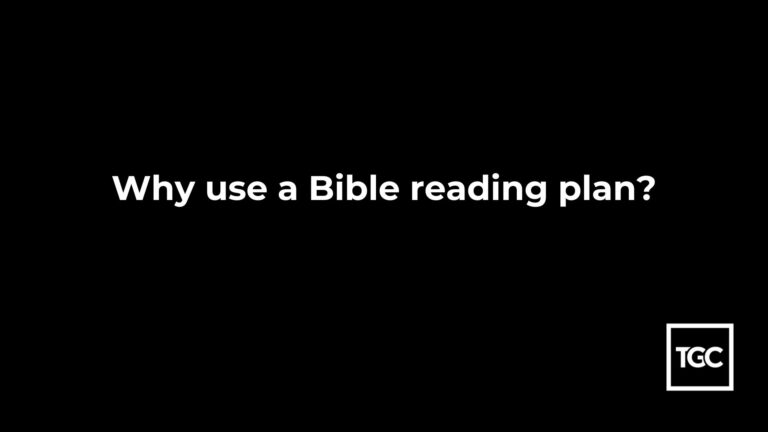As we read through the Psalms one of the things we have to deal with is the frequent mention of God’s hatred for wicked people.
The boastful shall not stand before your eyes; you hate all evildoers. You destroy those who speak lies; the Lord abhors the bloodthirsty and deceitful man. (Psalms 5:5–6 ESV)
How do we make sense of such a statement? We can’t simply say, “God hates the sin but loves the sinner” because that plainly isn’t what the text says.
The text says that God hates the sinner.
“you hate all evildoers.” (v.5)
“the Lord abhors the bloodthirsty and deceitful man.” (v.6)
So what do we do with that?
I suppose we could skip Psalm 5 but then we would run into the same problem in Psalm 11: “The Lord tests the righteous, but his soul hates the wicked and the one who loves violence” (Psalms 11:5 ESV).
And Psalm 106: “Then the anger of the Lord was kindled against his people, and he abhorred his heritage” (Psalms 106:40 ESV). [1]
That’s an awful lot of hate for a supposedly loving God.
And it appears to have rubbed off on David himself. David speaks of his own hatred towards sinners on multiple occasions. In Psalm 25 he says: “I hate the assembly of evildoers, and I will not sit with the wicked” (Psalms 26:5 ESV).
Other examples come easily to mind:
I hate those who pay regard to worthless idols, but I trust in the Lord. (Psalms 31:6 ESV)
I hate the double-minded, but I love your law. (Psalms 119:113 ESV)
Perhaps the most alarming statement of David’s hate is found in Psalm 139:
Do I not hate those who hate you, O Lord? And do I not loathe those who rise up against you? I hate them with complete hatred; I count them my enemies. (Psalms 139:21–22 ESV)
What do we do with all of that? How does that square with what the New Testament says about God in passages like John 3:16: “For God so loved the world, that he gave his only Son, that whoever believes in him should not perish but have eternal life” (John 3:16 ESV).
Or 1 John 4:8: “Anyone who does not love does not know God, because God is love” (1 John 4:8 ESV).
It almost sounds as if David and John are talking about two very different Gods. Of course David could sing about the love of God just as well as John:
Your steadfast love, O Lord, extends to the heavens, your faithfulness to the clouds. (Psalms 36:5 ESV)
And it’s not as though the Apostle John was ignorant of the wrath of God upon sin and sinners – after all John describes the judgment and condemnation of sinners using some of the most frightening language in all of Holy Scripture.
And the smoke of their torment goes up forever and ever, and they have no rest, day or night… (Revelation 14:11 ESV)
if anyone’s name was not found written in the book of life, he was thrown into the lake of fire. (Revelation 20:15 ESV)
John’s God of love was obviously capable of hating sinners and of removing them, forever, from his loving and gracious presence.
Therefore we cannot simply say that the God of the Old Testament is different than the God of the New, nor can we say that David didn’t know God as well as did John. Rather, it seems the problem exists in every section of the Bible, even if it appears more frequently and most vividly in the Book of Psalms.
So how should we handle it?
What should we do when next we meet the hatred of God or the hatred of David in the Book of Psalms? I suggest the following:
Let God be God
I think the main reason we find the hatred of God so hard to process is that we know from Scripture that hatred is not appropriate for the people of God. Jesus said: “Love your enemies and pray for those who persecute you” (Matthew 5:44 ESV).
There is no wiggle room in that statement. Jesus told us to love one another (John 13:34), to love our neighbours (Matthew 19:19) and even to love our enemies – that seems to leave no room for hatred of any kind. Christians rightly understand themselves as a people called to love – therefore we struggle to understand a God who reserves the right to hate.
But God is God and you are not.
There are many things God reserves the right to do that you cannot.
God judges the wicked – you cannot.
God sends some people to heaven and some to hell – you cannot.
God makes the rain to fall on the righteous and the wicked alike – you cannot.
Just as there are things your parents are allowed to do in their house that you are not allowed to do – so there are things that God does in his universe that you cannot.
This doesn’t make God a hypocrite, it simply makes him Other and Higher and Holy.
God is God and you are not.
It may be helpful to remember that the next time you see him doing something that you must not.
Remember that you are not the King
Rights and responsibilities are not handed out equally in God’s economy – Old Testament or New. Even in the New Testament we discover that Kings and Magistrates have certain authorities and privileges that are not shared with regular people. In Romans 13 for example, the Apostle Paul says:
Would you have no fear of the one who is in authority? Then do what is good, and you will receive his approval, 4 for he is God’s servant for your good. But if you do wrong, be afraid, for he does not bear the sword in vain. For he is the servant of God, an avenger who carries out God’s wrath on the wrongdoer. (Romans 13:3–4 ESV)
Here we learn that Kings do not bear the sword in vain – they bear it for a purpose and that purpose is to punish evil and to protect good. A King is allowed to use lethal force to pursue those objectives – to state the obvious, that same privilege is not given to regular people. On the contrary Jesus said to regular people:
Do not resist the one who is evil. But if anyone slaps you on the right cheek, turn to him the other also. (Matthew 5:39 ESV)
Regular people do not get to use swords (or guns) to resist evil unless they are commissioned to do so by lawful authority.
Similarly, regular people are not permitted to avenge themselves – the Bible says that explicitly.
Beloved, never avenge yourselves, but leave it to the wrath of God, for it is written, “Vengeance is mine, I will repay, says the Lord.” (Romans 12:19 ESV)
Regular people leave issues of vengeance and recompense to the Lord – who apparently, delegates some of that responsibility back to the state. Romans 13:4 says of the King: “he is the servant of God, an avenger who carries out God’s wrath on the wrongdoer” (Romans 13:4 ESV).
Therefore, even in the New Testament the King (or the Prime Minister or the Magistrate) has the authority from God to act as an agent of God’s righteous wrath against the wrongdoer.
So when David – as King – speaks of his intention to take vengeance upon evil doers he is speaking as he should given the office that he holds. It is right for David as the King to hate wickedness and to punish evil doers.
He is the Sword of God.
You are not.
David is also a “type” of Christ, meaning that David’s life establishes a sort of prophetic pattern that Christ fulfills. Jesus too will rule as King and will wield the sword of God. Jesus said that about himself: “Do not think that I have come to bring peace to the earth. I have not come to bring peace, but a sword” (Matthew 10:34 ESV).
Jesus divides all human beings into two camps: Those who willingly and joyfully submit to the Word of God, and those who remain opposed. When Jesus comes again he comes, like David, as the Sword of the Lord against all rebels and all evildoers.
Then I saw heaven opened, and behold, a white horse! The one sitting on it is called Faithful and True, and in righteousness he judges and makes war. His eyes are like a flame of fire, and on his head are many diadems, and he has a name written that no one knows but himself. He is clothed in a robe dipped in blood, and the name by which he is called is The Word of God. And the armies of heaven, arrayed in fine linen, white and pure, were following him on white horses. From his mouth comes a sharp sword with which to strike down the nations, and he will rule them with a rod of iron. He will tread the winepress of the fury of the wrath of God the Almighty. On his robe and on his thigh he has a name written, King of kings and Lord of lords. (Revelation 19:11–16 ESV)
Jesus is the Sword of God. He will rule over the nations with a rod of iron. Therefore like David it is appropriate to speak of him hating evil doers and punishing the wicked rebel. Jesus is the King, just as David was the King.
We are not.
Do what the Bible tells you to do
Therefore we should just do what the Bible tells us to do. The Psalms may speak of God hating evil doers and they may speak of David hating evil doers but they don’t tell us to do the same. On the contrary, the Psalms say that wicked, violent people will be rooted out from the world at the final judgment: “But the meek shall inherit the land and delight themselves in abundant peace” (Psalms 37:11 ESV).
That sounds very much like what Jesus said in Matthew 13:40-43:
Just as the weeds are gathered and burned with fire, so will it be at the end of the age. The Son of Man will send his angels, and they will gather out of his kingdom all causes of sin and all law-breakers, and throw them into the fiery furnace. In that place there will be weeping and gnashing of teeth. Then the righteous will shine like the sun in the kingdom of their Father. (Matthew 13:40–43 ESV)
Jesus will do the judging and the sorting and the condemning – he is God and he is King and therefore that is his responsibility and right. Our job is to be meek and righteous. At the end, he will remove all sin and all sinners, and we will shine like the sun in the Kingdom of our Father forever.
Thanks be to God!
Be thankful for the cross of Christ
Any meditation upon the hatred of God for sinners must end in thankfulness for the cross of Jesus Christ. The Bible says:
God shows his love for us in that while we were still sinners, Christ died for us. Since, therefore, we have now been justified by his blood, much more shall we be saved by him from the wrath of God. For if while we were enemies we were reconciled to God by the death of his Son, much more, now that we are reconciled, shall we be saved by his life. More than that, we also rejoice in God through our Lord Jesus Christ, through whom we have now received reconciliation. (Romans 5:8–11 ESV)
The Bible says that when we were sinners, we were enemies of God and under his wrath; but it also says that Jesus bore our sins in his body on the cross. In Colossians 2:13-14 the Apostle Paul says that God has:
forgiven us all our trespasses, by canceling the record of debt that stood against us with its legal demands. This he set aside, nailing it to the cross. (Colossians 2:13–14 ESV)
If you are in Christ then you will never face the wrath of God or the Sword of the Messiah. You will only know the love of the Father, the friendship of the Son and the fellowship of the Spirit – forever.
That is the Good News; that is the Gospel! And this is the Word of the Lord.
Thanks be to God!
SDG
Paul Carter
N.B. To listen to Pastor Paul’s Into The Word devotional podcast on the TGC Canada website see here; to listen to his introduction to the Book of Psalms see here. You can also find it on iTunes.
[1] The authorship of Psalm 106 is debated; some ascribe it to David while others believe it was written during the Babylonian captivity.
















